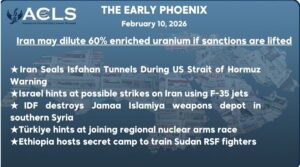1-Renewed Tensions in Turkish-American and Israeli Relations.
According to a report by Turkey’s “Hürriyet” newspaper, the United States and Israel continue to incite the Kurdistan Workers’ Party (PKK) against Turkey. Turkey, maintaining a firm stance, has declared no change in its military strategy in Northern Iraq, emphasizing the continuation of its operations against both the PKK and ISIS. Sources indicate that under President Recep Tayyip Erdoğan’s leadership, Turkey is shifting towards greater independence from the U.S. and asserting itself as a significant global player. Analysis, including those published in “Foreign Affairs” magazine, highlights Turkey’s growing role in global challenges, particularly in military technology and the defense industry.Turkish unmanned aerial vehicles (UAVs) are playing a pivotal role in this arena, bolstering Turkey’s position as a technological competitor on the world stage. CTech, a Turkish firm specializing in communication technologies and cybersecurity, has received a proposal from NATO for the purchase of its satellite communication products. This offer signifies recognition of Turkey’s technological advancements, especially considering the success of platforms like ANKA-S, TB-2, and ANKA-3 in enhancing Turkey’s defense capabilities. CTech’s CEO, Junaid Farat, points to the strategic importance of developing these systems using local and national resources. The company specifically focuses on communication technologies and information security, with a strong emphasis on cybersecurity in its offerings.
2-Turkey Escalates Military Operations Against Kurdish Militants in Cross-Border Campaign.
Turkish authorities have intensified their military campaign against the Kurdistan Workers’ Party (PKK) and the People’s Protection Units (YPG) in Iraq and Syria, with recent operations targeting 23 sites including shelters and ammunition depots. This five-day air offensive reportedly neutralized 78 militants, among them key leaders. The Turkish government, invoking Article 51 of the United Nations Charter, insists these actions are essential self-defense measures.Domestically, Turkey’s crackdown extends to arresting 165 suspects linked to the PKK across 28 provinces. Particularly notable were the operations in Izmir, where 15 individuals were apprehended, charged with violating anti-terrorism financing laws and engaging in terrorist propaganda. In Istanbul, 20 members of the PKK’s “Women’s Network” were detained, accused of aiding the group’s activities and spreading its message via social media. The Turkish government is also targeting the group’s propaganda efforts in the West, notably accusing British citizen Mark Campbell of promoting the PKK and recruiting young activists. In a broader context, these developments signal Turkey’s unyielding stance against perceived threats to its national security. The Turkish Parliament is actively seeking international support against terrorism, emphasizing the nation’s ongoing battle against “ISIS”, particularly in light of recent attacks within Turkey that have claimed lives. These military and internal security measures underscore Turkey’s commitment to maintaining regional stability and addressing security challenges both along its borders and within its own territory.



